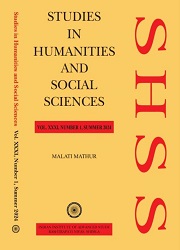Udayana’s Rebuttal of the Non-existence of Proof as the Proof for the Non-existence of the Self
Keywords:
Nyaya, Buddhism, Udayana, Atmatattvaviveka, Atman, SelfAbstract
All the systems of Indian philosophy accept the existence of the self (pudgala, jiva, purusa, "atman, dehatman etc.). Their discussion however involves conspicuous disagreements. Among several others, a long discourse on this issue was held between Nyaya and Buddhism. The eleventh-century Nyaya thinker 'Acarya Udayana’s masterpiece 'Atmatattvaviveka (Discerning the Nature of the Self, hereafter ATV) represents the crux of the discourse. He examines four basic objections against the Nyaya conception of the self: the doctrine of impermanence (ksanabhangavada), the rejection of external objects (bahyarthabhanga), the rejection of the difference between substance and properties (gunagunibhedabhanga) and non-cognition (anupalambha), and rejects each of them. The limited objective of the present article is to explore his refutation of the non-cognition argument which appears in the last part of the discourse. The non-cognition argument (also called argument ex silentio) is offered to prove the non-existence of the self ("atman) on the basis of its non-apprehension (anupalabdhi): There is no self because it is not apprehended. The rejection in question is not a general rejection, instead, it is meant for disproving the existence of an unchanging spiritual substance, namely, the self as conceived by the Nyaya tradition (acceptable to Vaisesika as well). Udayana adopts a twofold strategy to counter this argument: (a) the non-apprehension argument is not tenable, (b) there are acknowledged modes of the apprehension of the self. The following is the scheme of the article.


